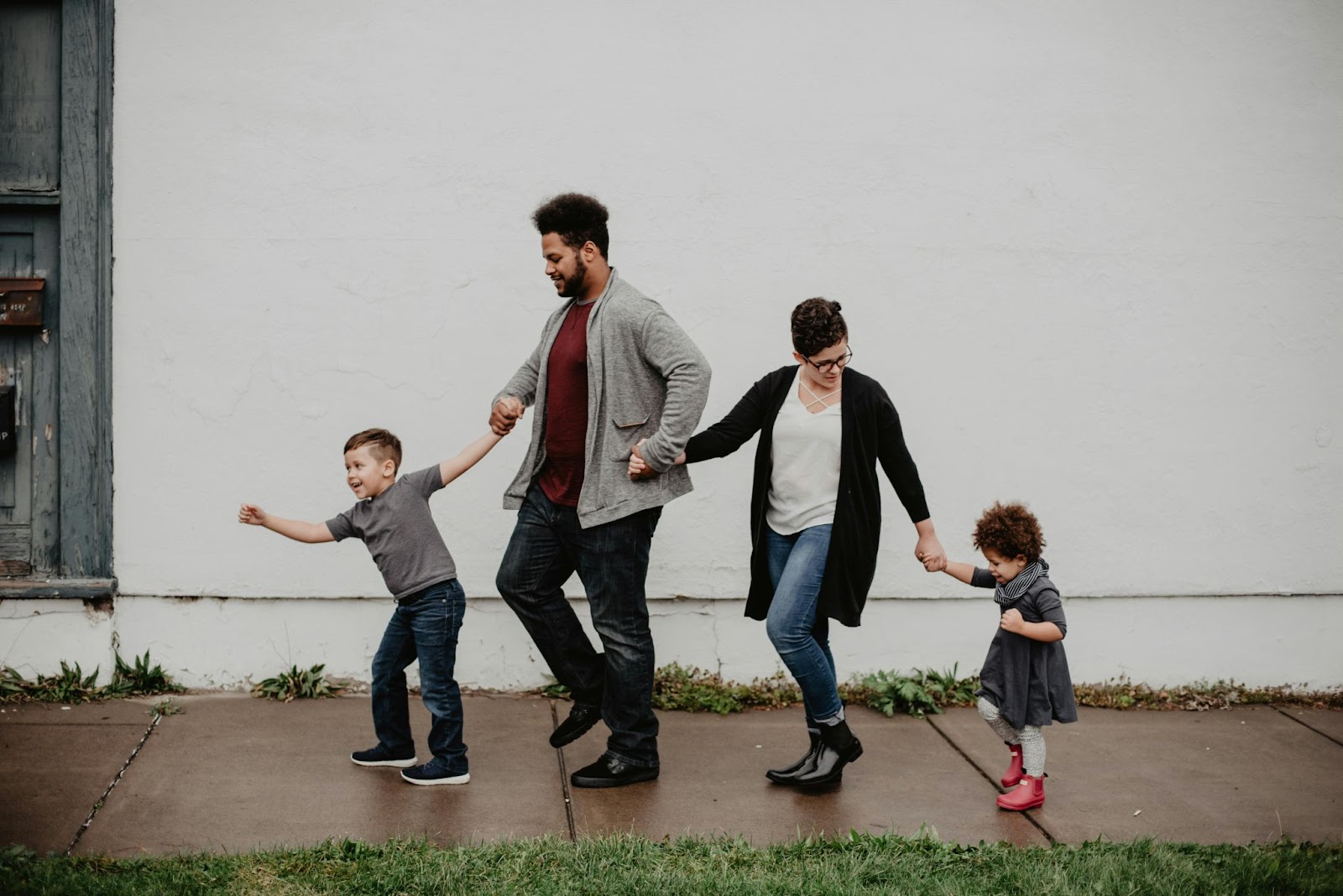
Learning some basic words can make a huge difference, whether you're planning a trip to a Spanish-speaking country or simply want to impress your Spanish-speaking friends and family members.
In this guide, we've compiled a list of the most common and essential Spanish words that every beginner should know. From greetings and introductions to vocabulary related to food, colors, and numbers, these words will allow you to start building simple conversations and better understand the Spanish you hear around you.
Not only will you learn the meaning of these words, but you'll also discover how to pronounce them correctly and how to use them in context. Additionally, we'll provide you with useful tips for memorizing the new vocabulary and effectively expanding your Spanish knowledge.

Mastering these 10 Spanish words for beginners is crucial because they form the backbone of daily communication. Let's begin your journey to sounding like a native Spanish speaker.
1. Hola (oh-lah) - Hello
2. Adiós (ah-dee-ohs) - Goodbye
3. Por favor (pohr fah-vohr) - Please
4. Gracias (grah-see-ahs) - Thank you
5. Sí (see) - Yes
6. No (noh) - No
7. Perdón (pehr-dohn) - Excuse me/Sorry
8. ¿Cómo? (koh-moh) - What?/How?
9. Agua (ah-gwah) - Water
10. Amigo/amiga (ah-mee-goh/ah-mee-gah) - Friend (male/female)
After learning these must-know questions and question words, you'll be able to communicate with Spanish people and ask for help if needed.
1. ¿Cómo estás? (koh-moh ehs-tahs) - How are you?
2. ¿Qué es esto? (keh ehs ehs-toh) - What is this?
3. ¿Dónde está el baño? (dohn-deh ehs-tah el bah-nyoh) - Where is the bathroom?
4. ¿Cuánto cuesta? (kwahn-toh kwes-tah) - How much does it cost?
5. ¿Hablas inglés? (ah-blahs een-glehs) - Do you speak English?
6. ¿Puedo tener...? (pweh-doh teh-nehr) - Can I have...?
7. ¿A qué hora? (ah keh oh-rah) - At what time?
8. ¿De dónde eres? (deh dohn-deh eh-rehs) - Where are you from?
9. ¿Cómo te llamas? (koh-moh teh yah-mahs) - What's your name?
10. ¿Puedo ayudarte? (pweh-doh ah-yoo-dar-teh) - Can I help you?

The best way to start a conversation with a native Spanish speaker is by greeting the person in front of you. Here is how:
1. ¡Hola, ¿cómo estás?!** (OH-lah, KOH-moh ehs-TAHS) - Hi, how are you?
2. Buenos días. (BWEH-nos DEE-ahs) - Good morning.
3. Buenas tardes. (BWEH-nahs TAR-des) - Good afternoon.
4. Buenas noches. (BWEH-nahs NOH-ches) - Good evening/night.
5. ¿Qué tal? (keh TAL) - How are you?
6. ¿Cómo te encuentras? (KOH-moh teh ehn-KWEHN-trahs) - How are you feeling?
7. ¿Cómo te va? (KOH-moh teh bah) - How's it going?
8. ¿Qué hubo? (keh OO-boh) - What's up?
9. ¡Qué gusto verte! (keh GOO-stoh VEHR-teh) - It's nice to see you!
10. ¡Buenas! (BWEH-nahs) - Greetings!/Good day!
Without knowing these basic Spanish verbs, you'll never be able to hold a conversation. Let's change that:
1. Ser (sehr) - To be
2. Estar (ehs-TAHR) - To be (temporary state/location)
3. Tener (teh-NEHR) - To have
4. Hacer (AH-sehr) - To do/make
5. Ir (eer) - To go
6. Venir (veh-NEER) - To come
7. Gustar (goos-TAHR) - To like
8. Comer (koh-MEHR) - To eat
9. Beber (BEH-behr) - To drink
10. Dormir (dohr-MEER) - To sleep

Family is at the center of every Spanish-speaking country. These are some of the basic Spanish people words that will help you get started discussing family in Spanish:
1. Persona (pehr-SOH-nah) - Person
2. Familia (fah-MEE-lyah) - Family
3. Padre (PAH-dreh) - Father
4. Madre (MAH-dreh) - Mother
5. Hijo/Hija (EE-hoh/EE-hah) - Son/Daughter
6. Hermano/Hermana (ehr-MAH-noh/ehr-MAH-nah) - Brother/Sister
7. Abuelo/Abuela (ah-BWEH-loh/ah-BWEH-lah) - Grandfather/Grandmother
8. Tío/Tía (TEE-oh/TEE-ah) - Uncle/Aunt
9. Primo/Prima (PREE-moh/PREE-mah) - Cousin (male/female)
10. Esposo/Esposa (ehs-POH-soh/ehs-POH-sah) - Husband/Wife
These are the Spanish words you need to know to discuss the weather. Like in most cultures, discussing the weather is one of the best ways to get started in making friends:
1. Tiempo (TYEM-poh) - Weather
2. Sol (sohl) - Sun
3. Lluvia (YOO-vee-ah) - Rain
4. Nube (NOO-beh) - Cloud
5. Viento (BYEN-toh) - Wind
6. Frío (FREE-oh) - Cold
7. Calor (kah-LOHR) - Heat
8. Nieve (NYEH-veh) - Snow
9. Tormenta (tohr-MEN-tah) - Storm
10. Niebla (NYEH-blah) - Fog
Great job learning these common Spanish words! You now have a solid foundation to begin speaking español.
Don't stop here - keep practicing and memorizing new vocabulary. Use these basic words in conversations with Spanish speakers whenever you can. The more you use them, the better you'll get at pronouncing them like a native.
There are also tons of free resources like vocabulary guides, phrasebooks, and language apps to help expand your word bank. Learn Spanish verbs, nouns, pronouns - the more words you know, the easier it will be to understand and communicate.
Most importantly, don't get discouraged. Learning a new language takes time, but these essential Spanish words give you a great head start. Keep practicing daily and you'll be speaking like a native español speaker before you know it!
Why Should I Learn Spanish Words?
Learning Spanish words opens up opportunities for communication, cultural understanding, travel, and career advancement. Spanish is widely spoken and offers insights into diverse cultures and perspectives.
How Can I Start Learning Spanish Words?
Beginners can start by familiarizing themselves with basic vocabulary related to everyday life, such as greetings, numbers, colors, and common objects. Online language learning platforms, mobile apps, and classes are excellent resources for acquiring Spanish vocabulary.
Are Spanish Words Similar to English?
While Spanish and English share some cognates (words with similar meanings and spellings), they also differ significantly. Learning Spanish words may be easier for English speakers due to shared vocabulary from Latin roots, but pronunciation and grammatical structures can pose challenges.
What Are Some Common Mistakes When Learning Spanish Words?
One common mistake is relying solely on direct translations from English, which may not always convey the intended meaning accurately. It's essential to understand cultural contexts and idiomatic expressions to use Spanish words effectively. Additionally, inconsistent pronunciation rules and verb conjugations can be challenging for learners.
How Can I Expand My Spanish Vocabulary Beyond Basic Words?
To expand your Spanish vocabulary, immerse yourself in Spanish-speaking environments, such as watching movies, listening to music, reading books, and engaging with native speakers. Using flashcards, keeping a vocabulary journal, and practicing regularly are effective strategies for reinforcing new words and concepts.